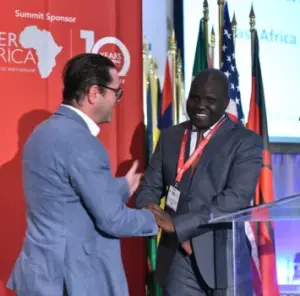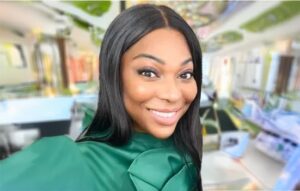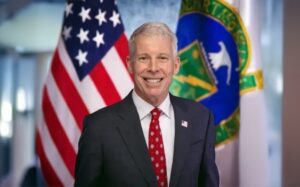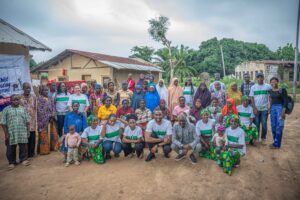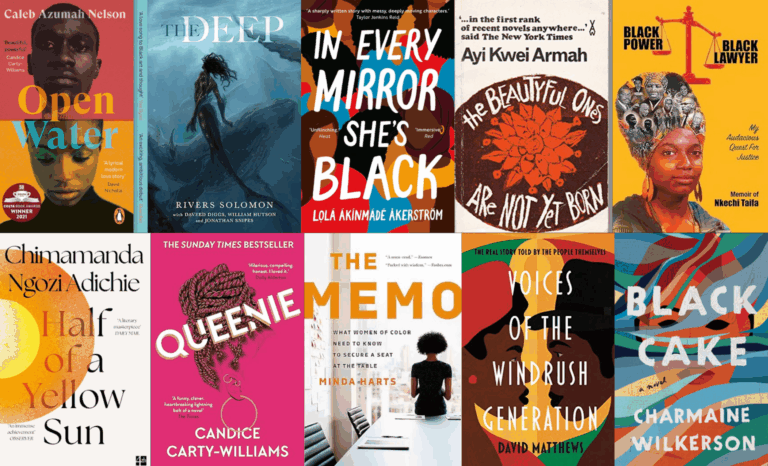
ENN Book Club: The Black History Month Edit
In October, Black History Month is celebrated in the United Kingdom, and in February, it is celebrated in the United States. Black History is not confined to a single month: it encompasses the past, present, and future, shaping the world we live in today. Through literature, stories, and lived experiences, we gain insight into resilience, creativity, and the pursuit of justice.
In this feature, we’ve curated a selection of books that honour the richness, resilience, and creativity of Black history and culture. Each book offers a unique lens on lived experiences, identity, and heritage. Dive into these stories to engage, reflect, and celebrate Black voices, while deepening your understanding and fostering meaningful allyship.
We hope this collection inspires continued learning, empathy, and action. Stay tuned as we continue to share resources that celebrate history, amplify voices, and honour the legacies that continue to shape our global community.
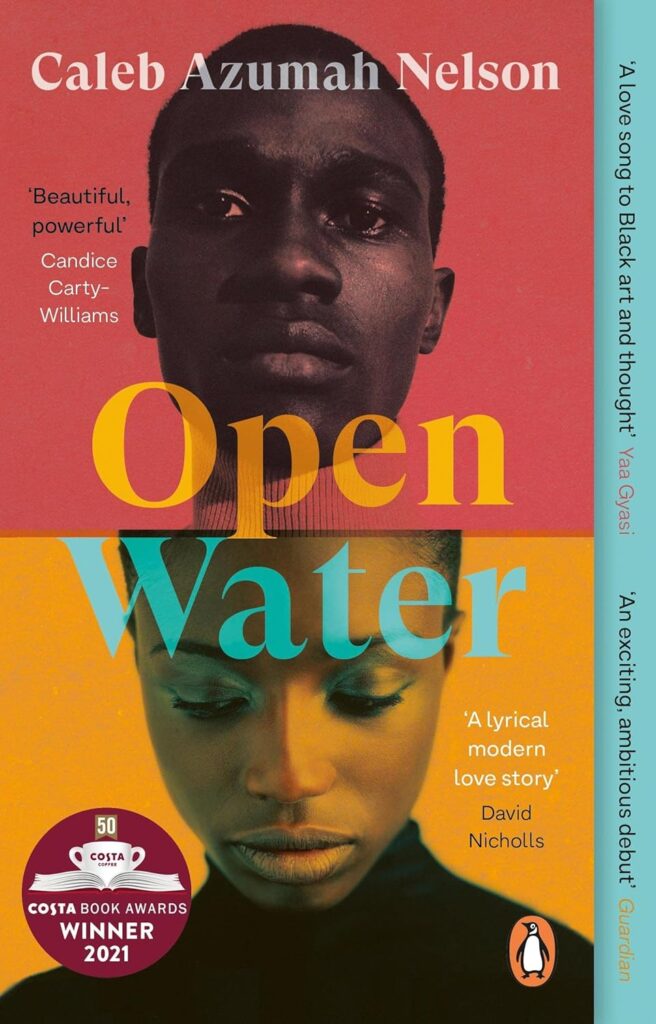
Open Water – Caleb Azumah Nelson
Azumah Nelson’s Open Water is an intimate, lyrical exploration of love, vulnerability, and identity. Set in London, the novel follows two young Black British artists navigating the tenderness and fragility of a new romance, while also contending with the weight of past trauma, systemic pressures, and the uncertainties of life. The narrative is deeply introspective, capturing the quiet, electric moments of connection, the nuances of intimacy, and the way art, music, and memory intertwine with the heart. Azumah Nelson’s prose reads like poetry, emphasising the sensory and emotional experiences of his characters, and the way love can be both grounding and overwhelming.
“It’s one thing to be looked at, and another to be seen.”

The Deep – Rivers Solomon
Across generations, African folklore, myths, and legends have been preserved through the art of oral storytelling. Among these tales is the figure of the mermaid, known by many names across regions and cultures. In parts of West Africa, she is Mami Wata; among the Yoruba people of Nigeria, she is Yemoja; and in Haitian tradition, she appears as La Sirène, the spirit of the sea.
Stories of mermaids and sirens have long transcended borders, inspiring countless interpretations around the world. Drawing from this rich heritage, Rivers Solomon reimagines these aquatic legends through a powerful narrative of water-dwelling descendants of enslaved African women, cast into the ocean and forced to forge a new existence beneath the waves — reclaiming their histories, identities, and collective memory to shape their own destiny.
“What is belonging?” we ask. She says, “Where loneliness ends.”

In Every Mirror She’s Black – Lolá Ákinmádé Åkerström
Lolá examines how race, privilege, gender, and class shape each woman’s experience in a society that often sees them before it truly knows them. Kemi, a successful marketing executive, seeks opportunity abroad; Brittany-Rae, a former flight attendant, is drawn into a life of luxury through love; and Muna, a Somali refugee, struggles to rebuild her world from the margins. Though their paths differ, each woman wrestles with questions of visibility, assimilation, and what it means to be seen — or unseen — in a foreign land.
Åkerström’s narrative is both deeply personal and universally resonant, shining a light on the complexities of the Black female experience across cultures.
“We are in fact all perfectly different, and what makes us different needs to be fully celebrated within society.”

The Beautyful Ones Are Not Yet Born – Ayi Kwei Armah
Ayi Kwei Armah dives into a portrayal of post-independence Ghana in the 1960s, which was a nation burdened by corruption. Through the eyes of an unnamed railway clerk, Armah captures the quiet despair of a man struggling to remain honest amid a corrupt and disillusioned society.
Armah’s prose, rich with symbolism and visceral imagery, examines how the promise of independence gave way to the grim realities of neocolonialism and self-interest.
Yet, beneath the decay, there lingers the possibility of renewal and the hope that “the beautyful ones” are still to come: those who might rise above corruption and embody the integrity the world has lost.
“Alone, i am nothing. i have nothing.we have power.but we will never know it,we will never see it work.unless we come together to make it work.”
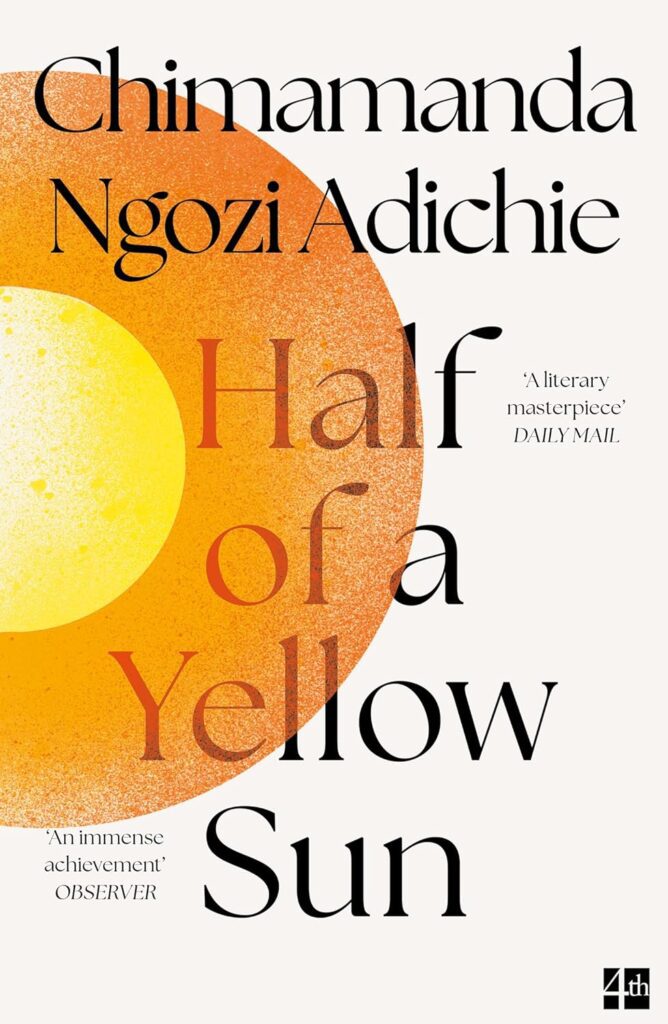
Half of a Yellow Sun – Chimamanda Ngozi Adichie
Chimamanda Ngozi Adichie crafts an intricate portrait of a nation divided, told through the experiences of the Biafran War in 1967. The novel focuses on perspectives from Olanna, the idealistic daughter of privilege; Ugwu, the bright village boy turned houseboy and soldier; and Richard, a foreign writer drawn into the Biafran struggle.
It raises issues around identity, love, pain, journalism and war. History is present in this book through the stories and a glossary of words from the Igbo dialect and pidgin.
“If the sun refuses to rise, we will make it rise.”

Queenie – Candice Carty-Williams
The novel follows Queenie Jenkins, a 25-year-old Jamaican British woman navigating the chaos of heartbreak, microaggressions, and societal expectations while trying to find her voice in a world that constantly tries to define her.
Queenie is not just a story of falling apart, but of learning that healing and self-worth begin when you stop performing for others and start listening to yourself.
“Before I got off the bus, I made an internal list of people who could touch my hair:
1. Me
2. A hairdresser
3. That’s it, that’s the whole list.”

The Memo: What Women of Color Need to Know to Secure a Seat at the Table – Minda Harts
The memo is a powerful call to action offering tailored career advice guide to women of colour to find their voice in the workplace. The guide is structured around career experiences, a plan of action to create a path to progress and support for women of colour.
Drawing from her own experiences and the stories of other women, Minda offers tangible strategies for advocating for oneself, building confidence, and creating pathways of inclusion and leadership. It is both a mirror and a manifesto, reminding women of colour that they belong not because permission is granted, but because their excellence demands recognition.
“We are constantly fighting those lovely labels some of our colleagues adorn us with… it’s important to kill those harmful stereotypes.”
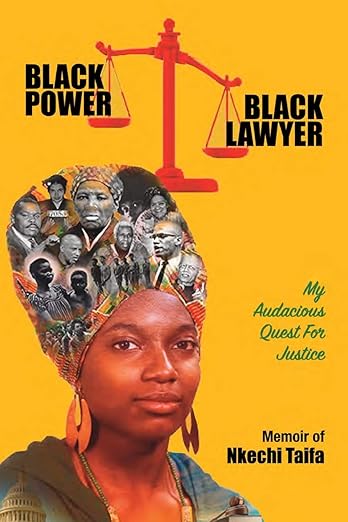
Black Power, Black Lawyer: My Audacious Quest for Justice – Nkechi Taifa
Attorney, activist and scholar Nkechi Taifa shares themes of politics, law and culture in her memoir as an attorney during the Black Power era. It intertwines personal narrative with the broader tapestry of Black liberation movements in America. Taifa chronicles her journey from a young Black nationalist influenced by the Black Power era to a seasoned civil rights attorney advocating for justice and reparations. Through candid storytelling, Taifa offers readers an insider’s view ofquest for justice in a society where the odds were against her favour but she was able to prevail.
“She wants a conscious Black attorney. She wants a revolutionary Black attorney. She wants you!”

Voices of the Windrush Generation – David Matthews
The real-life stories of nine immigrants from the West Indies who settled in Great Britain are compiled in this book between 1948 and 1971, it was a generation that helped rebuild a nation while redefining what it meant to be British. Through intimate interviews and first-hand accounts, Matthews captures the courage, resilience, and hope that carried these pioneers across the Atlantic. Their voices reveal both the promise and the pain of starting anew – from the optimism of arrival to the harsh realities of racism, exclusion, and perseverance in a country they would come to call home.
The book highlights the rich cultural legacy Afro-Caribbeans have brought to the UK, weaving together narratives of challenge, tribute, and self-discovery.
“We were all as British as British can be. The schools [in Barbados] taught British history and geography. I think I knew more geography and history of England than I did of Barbados when I came here!” — Caxton Holder’’

A Question of Manhood: A Reader in Black Men’s History and Masculinity – Edited by Darlene Clark Hine and Earnestine Jenkins
A groundbreaking anthology that redefines how we understand Black masculinity through history, culture, and lived experience. This collection brings together the voices of historians, scholars, and thinkers who trace the evolving meaning of manhood across the historical eras. It is a testament to how Black men have navigated identity, responsibility, and strength in the face of systemic oppression, while continually reshaping what it means to be whole, human, and free.
“Black manhood was shaped not only in relation to Black womanhood, but was variously nurtured and challenged, honed and transformed against a backdrop of white male power and domination, and the relentless expectations and demands on them to struggle, resist, and to facilitate the survival of African-American culture and community.”

Black Cake – Charmaine Wilkerson
This multigenerational family saga that delves into themes of identity, secrets, and the complexities of family bonds. The story follows two estranged siblings, Benny and Byron, who reunite after their mother’s death. In her will, she leaves them a traditional Caribbean black cake and a voice recording in which she reveals a tumultuous story about her past, challenging everything they knew about their family. The novel explores their journey of discovery as they uncover hidden truths and navigate the intricacies of their heritage.
“The sweetness of the black cake is a reminder that life’s richest flavors come from patience, love, and care.”










